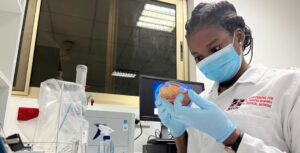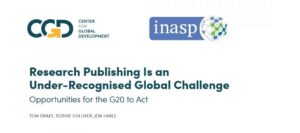Bangladesh sees high rates of drug resistance to urinary tract infection
Researchers caution healthcare professionals not to prescribe drugs without lab tests
Organisms causing urinary tract infections (UTI) are increasingly proving to be ineffective or showing resistance to drugs that are used to kill the germs. This phenomenon has been increasing worldwide, especially to commonly used antimicrobials (drugs) in children.
In a recent study in Bangladesh, scientists warn that urinary tract pathogens are developing resistance to antibiotics and they highly recommend sensitivity tests before prescribing any antibiotic.
The study, titled ‘Etiology and Antimicrobial Susceptibility Patterns of Urinary Tract Infection done at Dhaka Shishu (children) hospital’, published in the Northern International Medical College Journal suggests understanding the local vulnerability pattern of the pathogens. The article is hosted on the INASP-supported Bangladesh Journals Online (BanglaJOL) platform.
The study found that there is great risk of drug resistance if antibiotics are prescribed without sensitivity or laboratory culture tests. The principal investigator of the research, Dr Md Atiqul Islam, of Dhaka Shishu Hospital, the largest children’s hospital (DSH) in the Bangladesh capital says, “Ideally urine culture sensitivity patterns should be done before prescribing any antibiotic in treating urinary tract infection (UTI).”
Dr. Islam, who notes that the UTI is common and can be fatal, says, “Most of the UTIs do not allow sufficient time as patients in majority cases do not want to wait for such a test that takes up to 72 hours.”
He explains, “Physicians prescribe antibiotics on physical examination of a patient based on clinical conditions and local micro-organism sensitivity pattern. Antibiotics are prescribed to prevent any deterioration in the condition that may result in serious complications, and thus we prescribe antibiotics.”
The seven-month study done in 2016 at DSH evaluated a total of 147 culture-positive UTI patients for the laboratory analysis. In this case, urine samples of the patients were collected. Out of the total, 147 urine samples showed positive or had bacteria of different types grown. The bacteria colony counts of these samples were identified, and the profile of antibiotic susceptibility was recorded.
Among 147 culture-positive UTI patients, Escherichia coli (E-coli) was found as the most prevalent in 103 (70%) infected children.
The study revealed that the most effective drugs found against urinary isolates was Imepenum, (97.27%), followed by Colistin (94.55%), Meropenum (93.87%) and Amikacin (91.83%).
Professor Dr. B H Nazma Yasmeen, one of the co-authors of the study and also Head of the Department of Paediatrics at the Northern International Medical College in Dhaka, says, “Periodic evaluation of antimicrobial activity of different antibiotics is essential as the pattern of antibiotic sensitivity may vary over periods.”
The study strongly recommended that there is a great need for antimicrobial resistance surveillance at the local, national, and international levels. The scientists suggest that there is a need for laboratory analysis of the commonly used drugs that are prescribed to treat UTI in children.
The laboratory test would evaluate effectiveness of the drugs in certain localities (geographic areas) to know in advance which suitable effective drugs to prescribe before delaying treatment.
The effect of resistant microorganism is obvious in hospitals and other healthcare facilities, when infections caused by the drug-resistant microorganism, the study points out. This results in a prolonged infectivity with related mortality especially among immune compromised patients.
For more information: Northern International Medical College Journal, Dr. Md. Atiqul Islam & Prof. Dr. B H Nazma Yasmeen, Etiology and Antimicrobial Susceptibility Patterns of Urinary Tract Infection, Volume-8, No. 02 January 2017, Page 220-223. The journal and the article are made available online on the BanglaJOL platform, which is supported by INASP.
About the journal
Northern International Medical College Journal is published by Northern International Medical College (NIMC), Dhaka.
About BanglaJOL
Bangladesh Journals Online (BanglaJOL), a part of INASP’s Journals Online project, is a database of journals published in Bangladesh, covering the full range of academic disciplines. The objective of BanglaJOL is to give greater visibility to the participating journals and to the research they convey. It is managed by the Bangladesh Academy of Sciences (BAS) and was developed in collaboration with INASP. There are now 141 journals on BanglaJOL listing over 20,000 articles.
About INASP
Founded in 1992, INASP is an international development charity working with a global network of partners in Africa, Latin America and South Asia. In line with the vision of research and knowledge at the heart of development, INASP works to support individuals and institutions to produce, share and use research and knowledge, which can transform lives.
INASP’s approaches are based on the core pillars of capacity development, convening, influencing and working in partnership. INASP promotes equity by actively addressing the needs of both men and women across all our work and addressing issues of power within the research and knowledge system. INASP has projects in 28 countries, supporting all aspects of research and knowledge systems, from facilitating the provision of information to researchers to helping parliamentarians and civil servants to use research and evidence in policy making.
Disclaimer: Research published in journals hosted on the BanglaJOL platform is selected by the journals in accordance with their own editorial processes and criteria. INASP and the National Science Foundation of Bangladesh provide hosting and guidance on good practices but are not involved in selection of research.
For further information:
Naimul Haq, Communications Consultant, INASP
Email: NHaq@inasp.info
Dr Sangita Shrestha, Communications Officer, INASP
Email: sshrestha@inasp.info

 Next Post
Next Post


